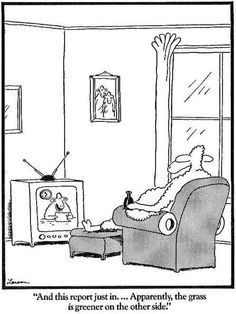 Continuing on with the general theme of motivated reasoning, there are some rather interesting results reported in New Republic, here. Specifically, Ian Anson from University of Maryland, Baltimore County, found that political partisans reinforced their perspectives on the state of the U.S. economy more strongly when they were given “just the facts” rather than a strong partisan statement combined with the facts. Even when the partisan statements aligned with their own partisan perspectives, the effect held.
Continuing on with the general theme of motivated reasoning, there are some rather interesting results reported in New Republic, here. Specifically, Ian Anson from University of Maryland, Baltimore County, found that political partisans reinforced their perspectives on the state of the U.S. economy more strongly when they were given “just the facts” rather than a strong partisan statement combined with the facts. Even when the partisan statements aligned with their own partisan perspectives, the effect held.
The author concludes that people, in constructing their views of the causal drivers of the economy, believe that they are unbiased in their understanding of the underlying mechanisms. The barefaced partisan statements interrupt that construction process, perhaps, or at least distract from it. Dr. Anson points out that subtly manufacturing consent therefore makes for better partisan fellow travelers.
There are a number of theories concerning how meanings must get incorporated into our semantic systems, and whether the idea of meaning itself is as good or worse than simply discussing reference. More, we can rate or gauge the uncertainty we must have concerning complex systems. They seem to form a hierarchy, with actors in our daily lives and the motivations of those we have long histories with in the mostly-predictable camp. Next we may have good knowledge about a field or area of interest that we have been trained in. When this framework has a scientific basis, we also rate our knowledge as largely reliable, but we also know the limits of that knowledge. It is in predictive futures and large-scale policy that we become subject to the difficulty of integrating complex signals into a cohesive framework. The partisans supply factoids and surround them with causal reasoning. We weigh those against alternatives and hold them as tentative. But then we have to exist in a political life, as well, and it’s not enough to just proclaim our man or woman or party as great and worthy of our vote and love, we must also justify that consideration.
I speculate now that it may be possible to wage war against partisan bias by employing the exact methods described as effective by Dr. Anson. Specifically, if in any given presentation of economic data there was one fact presented that appeared to undermine the partisan position otherwise described by the data, would it lead to a general weakening of the mental model in the reader’s head? For instance, compare the following two paragraphs:
The unemployment rate has decreased from a peak of 10% in 2009 to 4.7% in June of 2016. This rate doesn’t reflect the broader, U-6, rate of nearly 10% that includes the underemployed and others who are not seeking work. Wages have been down or stagnant over the same period.
Versus:
The unemployment rate has decreased from a peak of 10% in 2009 to 4.7% in June of 2016. This rate doesn’t reflect the broader, U-6, rate of nearly 10% that includes the underemployed and others who are not seeking work. Wages have been down or stagnant over the same period even while consumer confidence and spending has risen to an 11-month high.
The second paragraph adds an accurate but upbeat and contradictory signal to the more subtle gloom of the first paragraph. Of course, partisan hacks will naturally avoid doing this kind of thing. Marketers and salespeople don’t let the negative signals creep in if they can avoid it, but I would guess that a subtle contradiction embedded in the signal would disrupt the conspiracy theorists and the bullshit artists alike.